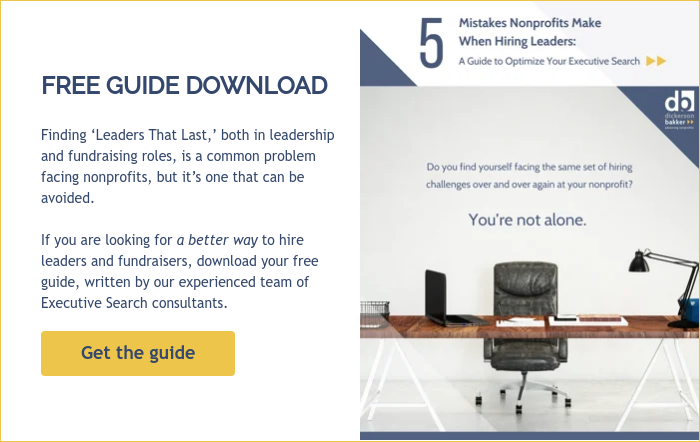Effective staff training is a cornerstone of success for nonprofit organizations. With teams often juggling diverse responsibilities and limited resources, equipping employees with the right skills and knowledge is essential.
Thoughtful training programs not only boost performance but also enhance job satisfaction, creating a more motivated and engaged workforce. In this article, we’ll explore best practices for nonprofit staff training to help your team thrive and make an even greater impact on your mission.
Why Nonprofit Staff Training is Important
Training empowers employees with the skills and knowledge they need to excel in their roles, adapt to evolving challenges, and work collaboratively toward common goals. It also fosters a culture of continuous learning, where staff feel valued and supported in their professional growth.
When employees are well-trained, they are more confident, efficient, and capable of addressing the unique demands of the nonprofit sector, ultimately leading to stronger outcomes for the communities they serve.
5 Nonprofit Staff Training Best Practices
These best practices will help you start your path to improving staff training.
1. Establish Core Training Principles
Establishing core training principles is a key best practice for nonprofit staff training, ensuring that the program is both effective and aligned with your organization's mission. First, training should directly reflect the nonprofit’s goals, helping employees understand how their roles contribute to the bigger picture and the impact on the community. It’s also important to tailor training to the diverse roles and experience levels within your team—whether it's for new hires or seasoned staff members, the content should meet their unique needs.
Additionally, adult learners thrive when training is both informative and engaging. To maximize retention and participation, focus on creating relevant, interactive learning experiences that resonate with the real-world challenges staff face in their day-to-day work. This approach not only enhances skill development but also fosters a deeper connection between the staff and the mission they serve.
2. Develop Foundational Skills
Developing foundational skills is an essential best practice in nonprofit staff training, beginning with a comprehensive onboarding process for new hires. This initial phase should cover crucial areas such as organizational policies, procedures, and the nonprofit's unique culture. By providing new staff with a clear understanding of these fundamentals, you set them up for success and ensure they feel confident in their role from the start.
Focusing on core skills like project management and time management is vital for all staff, regardless of experience level. These skills are especially important in nonprofit settings, where staff often juggle multiple responsibilities with limited resources. Training in these areas helps employees prioritize tasks effectively, meet deadlines, and manage projects efficiently, ultimately leading to better organizational performance and a more productive team.
3. Foster Continual Learning
Fostering continual learning is a powerful best practice for nonprofit staff training, as it ensures that employees remain engaged, informed, and equipped to adapt to new challenges. Offering monthly seminars on relevant topics such as fundraising, marketing, and volunteer engagement can provide staff with valuable knowledge and skills that are directly applicable to their roles. Rotating the facilitation of these sessions among team members is another effective strategy, allowing individuals to share their expertise and perspectives, which not only strengthens the team but also builds a sense of ownership and collaboration.
Providing a small budget for continuing education classes and conferences encourages staff to pursue personal growth and stay updated on industry trends. This commitment to ongoing learning helps nonprofit organizations cultivate a skilled, motivated workforce, ultimately benefiting both staff and the communities they serve.
4. Leverage Free Resources
Leveraging free resources is an effective and budget-friendly best practice for nonprofit staff training, especially for organizations with limited financial resources. Public libraries, for example, often provide free or low-cost spaces for workshops and group training sessions, creating an affordable option for in-person learning.
Online courses offered through platforms like Coursera can be a valuable resource for building skills in areas such as leadership, project management, and specific nonprofit functions, all at an affordable price. Many grantors and nonprofit-focused organizations also offer free webinars on important topics like compliance, reporting, and fundraising strategies.
By utilizing these accessible resources, nonprofits can provide high-quality training to their staff while keeping costs down, ensuring that ongoing professional development remains within reach.
5. Assess Training Effectiveness
Assessing training effectiveness is a crucial best practice for nonprofit staff training, ensuring that the time and resources invested in learning lead to tangible improvements. One way to evaluate the success of training programs is by surveying staff members after sessions to assess their relevance and usefulness, giving you insights into areas that may need adjustment or improvement.
Tracking key performance metrics, such as fundraiser performance or volunteer retention, helps gauge whether training has had a direct impact on organizational goals. Soliciting feedback from program participants is another valuable method, as it provides a community-driven perspective on how well staff are applying their training in real-world settings. By continuously evaluating the effectiveness of training, nonprofits can refine their approach and ensure that their staff is equipped to create lasting, positive change in the communities they serve.
Enhance Your Impact With Nonprofit Staff Training
By incorporating these best practices into your nonprofit’s staff training efforts, you can build a skilled, motivated team ready to tackle challenges and amplify your mission’s impact. From fostering continual learning to leveraging free resources and assessing training effectiveness, these strategies ensure your staff is empowered and engaged.
At DickersonBakker, we understand the importance of cultivating talent within nonprofits, and we’re here to help. Whether you need guidance on staff development or support in finding the right talent for your organization, we are your trusted partner in building a stronger, more effective team. Let’s work together to drive your nonprofit’s success—because when your staff thrives, so does your mission.



